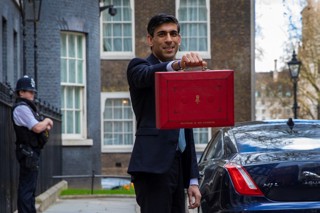Edwin Kemp, associate director Mobility 2030 at KPMG UK
As expected, headline measures in the 2020 Budget were designed to address the COVID-19 pandemic. Nevertheless, in what was a broadly positive Budget for fleets and the electric vehicle (EV) market, there were a number of items of note.
The Chancellor confirmed that company car tax rates disclosed last year will proceed. Specifically, benefit-in-kind rates on zero-emission vehicles (ZEVs) will be set at 0% for tax year 2020/21, rising to 1% in 2021/22 and 2% in 2022/23.
Furthermore, this 2% rate will now be frozen until 2024/25. These measures will boost EV demand in the popular benefit, and five-year certainty should support investment decisions and company car market recovery.
There were fears the plug-in car grant (PICG) would be curtailed. However, the confirmation of its extension to 2022/23 reduces the total cost of ownership and further incentivises EV uptake. ZEV exemption from the ‘expensive car supplement’ through to 2025 was another welcome boost.
The £500m announced for investment in rapid charging hubs should help to address a key impediment for fleets of switching to EV – the lack of supporting infrastructure – by reducing vehicle downtime and allaying concerns about running out of charge.
Lastly, a portion of the £900m committed to high-potential technologies will go into UK supply-chains for the production of EVs at scale, supporting future availability of supply and UK manufacturing more broadly, at a challenging time.
However, there were some inconsistencies and questions raised by the Budget. There is little clarity as to how the £500m funding for rapid charging hubs will be spent.
Meanwhile, there were no new announcements around home and workplace charging support. These locations will represent the majority of charging activity, so further investment in these areas would have been welcomed.
Perhaps most surprisingly, PICG funding for battery electric vehicles (BEVs) will drop to £3,000 (from £3,500). This will be particularly impactful in the short-term for those with lower purchasing power, while it also conflicts with the overall positive direction of travel.
There are two areas I believe were missed opportunities. The first being the transition to greener mobility, which doesn’t just concern automotive and transport value chains, because architecting the future state requires a collaborative, ecosystem approach. This includes energy and, disappointingly, there were no major announcements, for example, on green energy infrastructure or grid-level storage, both of which will be crucial to support EV uptake and deliver its benefits. This needs greater focus in future.
Secondly, to stimulate cross-sector mobility investment, catalyse the market and place the UK at the heart of the global EV transition, it would have been beneficial had the Government announced a fund similar to that of the Green Investment Bank for green energy a few years back.
In summary, there were positive announcements for fleets, but to truly drive the transition to a de-carbonisation, further work must be done to bring the whole ecosystem together.




















Login to comment
Comments
No comments have been made yet.